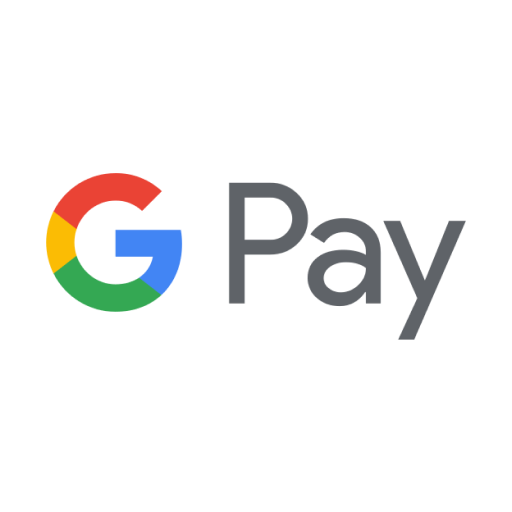NymCard - Digital First Card Program
NymCard, 2016 - 2019
Consider the following
NymCard business model evolved since I left the company. However, I wanted to showcase my 4 years journey and how we went from a concept to +100,000 downloads on Google Play store.
Please note that I was the only designer in the team and I did my best to learn and apply the best processes on my own. I may have missed so many important notions, but I learned tons of things that helped move to the next level in my career.
— Introduction
— Problem and possible solution
— My role
— The model
— The process
— Takeaway
— Facts and numbers
Introduction
Banks are not just competing with other banks anymore and need to provide mobile payment solutions that offer high engagement and personalized experience.
The access to customers' payment data at scale is the key competitive advantage, which is way more powerful data than “Likes”, “Shares” and “Comments”.
Problem & Possible Solution
The Problem
The problem was that this valuable data has been stored in silos with no insights to customers along with a poor digital interface. This situation was leading to the following:
Banks weren’t providing users a personalized experience.
Banks couldn’t provide merchants with insightful data to maximize their selling.
Thus, merchants couldn’t promote their products based on users’ behavior.
Possible Solution
The solution is to provide an appealing product with a friendly experience for the end user and a whole system that allows banks to segment clients according to their financial activity resulting in a higher engagement with targeted offers funded by the bank itself or other merchants.
My role
Early in the days, my role was to understand, ideate and build a “Proof of concept” for this model - as a solo designer - so we can get the funding we’re aiming for. And that’s what we did.
Later on, I had the opportunity to form a small design team to deliver many digital products, cross platforms.
The model
NymCard project consisted of three main products
iOS and Android mobile apps
Part of B2C model
Token Management Portal
Required by MasterCard and Visa
Campaigns management system
Part of the B2B model
In this case study, we will discuss the mobile app journey and how it all started.
The entire system was built to support 3 main modules
Smart Feed
Transactions listing.
Transactions categorization.
Transactions search (+ advanced search).
Digital Wallet
Mobile payment service (for Android).
Credit card issuance
Physical credit card enrollment.
PFM
"Personal financial management" feature that helps users manage their money and get insights on their financial activity in a friendly way.
The 5 stages process
When I was first told about the NymCard project, I was so excited. It was a real challenge to step into the finTech world.
1 - Empathize
A deep understanding of "Why it is for” and “How it works” was crucial at the beginning, asking what are the benefits from:
the user perspective?
the bank perspective?
the merchants perspective?
2 - Research
Research and exploring similar products was a very important step since it wasn’t going to be achievable spending much time conducting users interviews with such an aggressive timeline (6 months) and fixed budget.
3 - Ideation
Ideating and sharing these ideas early in the process with product architects and the backend team before any design execution. At this stage, we tried to explore a variety of ideas (Diverge) so that we can better narrow down the ones that will work best for us later (Converge).
4 - Design & Prototype
“Designing” and “Prototyping” after validating all concepts with the technical team and the product owners. This step required an entire separate process for:
Sketching ideas
Build wireframes
Prototype
5 - Test and iterate
I constantly tried my best to have various co-workers and peer-review sessions through each and every feature, keeping in mind which feature for which person (an existing user, or a first time user...etc).
That was when I applied roughly the qualitative / quantitative testing methods.
Room for improvement
I know we can’t learn everything, and if we do, it’s hard to handle or apply it as in the book.
What I wished we could enhance more in our process was:
Agile methodology which was applied pretty much the right way but I always wished we could nailed it more.
Qualitative and quantitative user testing sessions with insights was occasionally applied, in a limited way.
Facts & numbers
$36.1M in funding
NymCard's solution was very remarkable in the Levant area, and many investors’ attention. So far, NymCard has raised a total of $36.1M in funding over 8 rounds.
Their latest funding was raised on Jun 8, 2022 from a Series A round.
Regional Expansion
NymCard expanded its activity to reach the GCC, specifically UAE 🇦🇪
In August 2020, NymCard received an IPA (In-Principle Approval) from the Financial Services Regulatory Authority (FRSA) Abu Dhabi.
Visa and Mastercard certificates
NymCard is Visa Ready Certified for Visa Token Service (VTS) as NFC Issuer Wallet.
“Developer Partner” approval with Mastercard.
+110,000 Downloads
+100,000 downloads (Android) - NEO, Iraq. (Google Play)
+10,000 downloads (Android) - Investbank “Yap” digital wallet. (Google Play)
Partnerships
NymCard is now trusted and partnering with the most recognized technologies and finTech solutions around the globe
Takeaway
NymCard was the first project I’ve worked on as a “Product Designer”. Putting all my design and front-end skills into practice was a big challenge, especially in the first days.
Too many times, I went into wrong directions, but eventually I always learning a lot.
What I learned:
Deep understanding for '“Business Requirements”
User's needs
Research and benchmark
Product architecture
Ideation
Design System (HIG and Material Design guidelines)
Cross-platform thinking
Atomic design approach
Micro and self-management
Planing and roadmaps
Functionality map
















